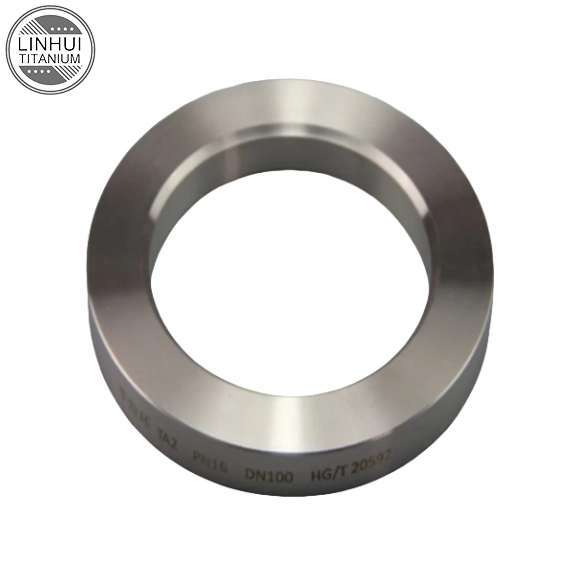Titanium alloy forging
Standard: ASTM B381, ASTMF67, ASTMF136
Grade: GR1,GR2,GR5,GR12
Titanium content: 99.6%
Impurity: 0.5%
Characteristics: Corrosion resistance Acid and alkali resistance
Packing: Wooden case
Titanium alloys have many advantages, such as high strength, good corrosion resistance, non-magnetic and good welding properties, in addition to a number of advantages such as superconductivity, hydrogen storage and memory. Titanium alloy forging are widely used in aerospace, military industry, marine development, petrochemicals and other frontier fields.
Titanium alloy forgings are one of the various titanium alloy products that are mainly used in applications requiring high strength, high toughness and high reliability, such as turbine compressor discs and medical artificial bones. As a result, the requirements for forged parts include not only highly accurate dimensions, but also excellent performance and stability.
Product Information
| Product name | Titanium alloy forging |
| Standard | ASTM B381, ASTMF67, ASTMF136 |
| Grade | GR1,GR2,GR5,GR12 |
| Titanium content | 99.6% |
| Impurity | 0.5% |
| Characteristics | Corrosion resistance Acid and alkali resistance |
| Packing | Wooden case |
| Colour | Metallic |
| Inspection of titanium forgings | Destructive testing: Physical property test, hardness test, chemical composition test. Non-destructive testing: ultrasonic testing, penetration testing, appearance testing. |
| Manufacturing process | High strength, corrosion resistant forging, rolling, grinding. |
How to test the quality of titanium alloy forgings?
1. Macro inspection
Surface quality: check the surface of the forging for cracks, folding, inclusions and other defects. These defects will seriously affect the performance and service life of the forging.
Dimensional inspection: Use measuring tools to measure the dimensions of the Titanium alloy forging to ensure that they meet the design requirements. For critical dimensions, 100% inspection should be carried out.
Shape inspection: Check whether the shape of the forging meets the design requirements, such as bending and twisting. This is related to the stability of the forging in the process of assembly and use.
2. Physical property inspection
Density test: Calculate the density of the forging by measuring its weight and size. Compare with the standard value to judge the purity of the forging.
Hardness test: Hardness is an important index to measure the material performance. Through the hardness test, find out whether the hardness of Titanium alloy forging meets the requirements.
Tensile property test: Through the tensile test, understand the tensile strength, yield strength and elongation of them and other parameters to assess their mechanical properties.
Impact performance testing: impact test can reflect the toughness and brittle transition temperature of the material under impact load, which is of great significance for assessing the safety performance of them in practical applications.
Production equipment
Customized processing with drawings and samples, with excellent production equipment

CNC lathe

CNC lathe

Ring milling machine

Annealing furnace

Skin peeling machine

Melting furnace
Why Choose Us?
Control the quantity
strictly control the products to ensure the standard of the products.
Quality assurance
made of quality materials, not easy to corrode, light weight.
Factory shipment
factory direct shipment, cut out the intermediate price, cost-effective, direct benefit to consumers
Support customisation
according to customer Titanium alloy forging requirements, customised to various specifications, can be customised to drawings and samples.






